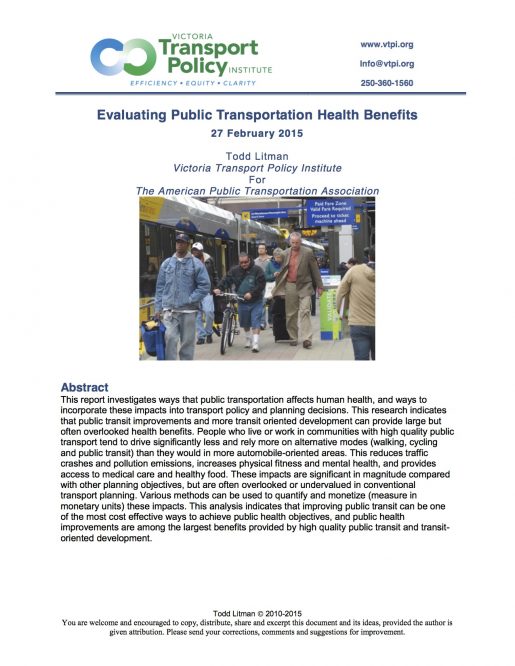
Authors
Publication Date
February 27, 2015
Tags
Resource Type
Related Assets
Evaluating Public Transportation Health Benefits
This report investigates ways that public transportation affects human health, and ways to incorporate these impacts into transport policy and planning decisions. This research indicates that public transit improvements and more transit oriented development can provide large but often overlooked health benefits. People who live or work in communities with high quality public transport tend to drive significantly less and rely more on alternative modes (walking, cycling and public transit) than they would in more automobile-oriented areas. This reduces traffic crashes and pollution emissions, increases physical fitness and mental health, and provides access to medical care and healthy food. These impacts are significant in magnitude compared with other planning objectives, but are often overlooked or undervalued in conventional transport planning. Various methods can be used to quantify and monetize (measure in monetary units) these impacts. This analysis indicates that improving public transit can be one of the most cost effective ways to achieve public health objectives, and public health improvements are among the largest benefits provided by high quality public transit and transit-oriented development.